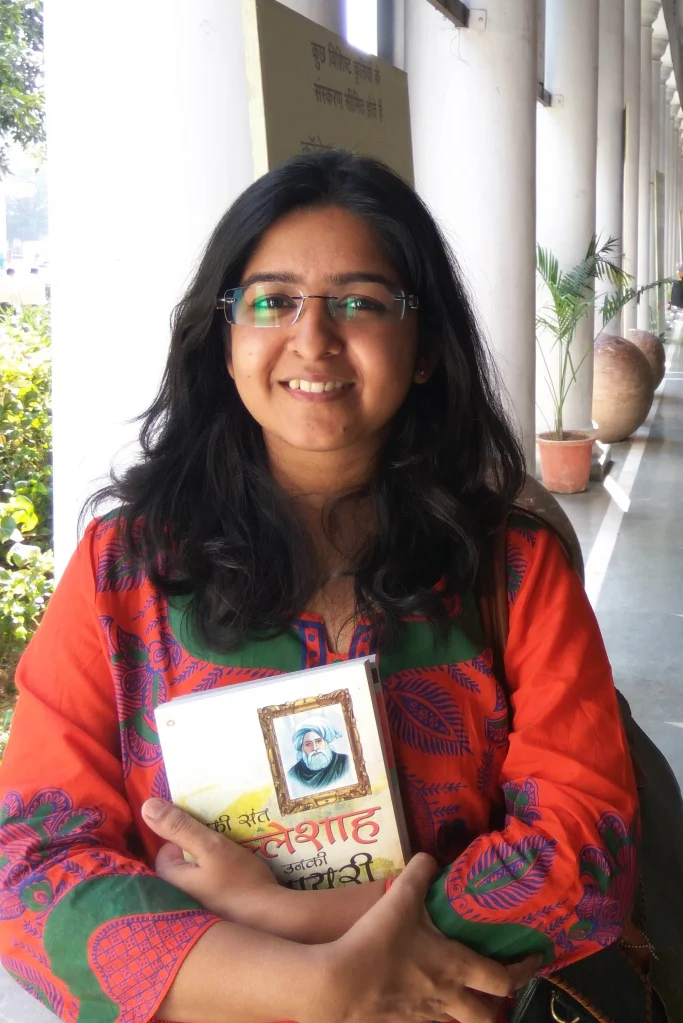By Shweta Bhandral
“It is important to have discussions where you can be critical of not only the other but oneself too.” – Dr Devika Mittal
“Peace needs empathy.” – Saadia Gardezi
“Peace that is not built on justice is no peace at all.” – Kirthi Jayakumar
These were some of the thoughts voiced during the youth panel discussion at eShe Indo-Pak Peace Summit Led by Women, where over 40 eminent personalities from around the world came together to seek solutions for long-lasting peace in the region.https://www.youtube.com/embed/zPGZEgkGYBs?version=3&rel=1&showsearch=0&showinfo=1&iv_load_policy=1&fs=1&hl=en&autohide=2&wmode=transparent
The six young women in the panel titled ‘What Works: How Youth Organisations Are Leading the Way’ discussed their own work in the area of peacebuilding and brought out the narratives that slip through the cracks when we talk of peace and justice.
Panelists included:
Dr Devika Mittal, scholar and convener at Indo-Pak peace initiative Aaghaz-e-Dosti (India)Isha Jerath, National VP, youth organisation AIESEC (Switzerland)Kirthi Jayakumar, feminist researcher, founder of The Gender Security Project
and Saahas (India)
Saadia Gardezi, political cartoonist, journalist and co-founder of Project Dastaan (Pakistan)
Tooba Tahir, art educator, peace agent, Salamti Fellow (Pakistan)
Moderator: Ananya Jain, racial equality representative, University of St Andrews (Scotland)

The power-packed discussion was marked by clarity of thought, driven by energy and optimism to change the world for the better. It was proof that there are enough youth today who believe in the power of collective action and one world.
The year 2020 showed us that even if we are confined to our homes, a collective effort is all it takes to make a difference. Through the year, youth organisations and youth-led NGOs around the world came forward to help patients in need, mobilised and extended support to people who were ignored by the system, and brought forward voices and spoke fearlessly on issues ranging from the environment to politics.
The organisations represented in panel included Project Dastaan, which works with Partition veterans of both India and Pakistan, and helps them find a sense of closure on the unfinished, uprooted memories of their ancestral homes/cities using virtual-reality technology.
Saadia Gardezi, a political cartoonist and the Pakistan-based co-founder of the initiative, said, “It’s a grassroots intervention into connecting people and amplifying our shared heritage. We keep talking about Partition trauma but do we really want to engage with this generation and their feelings? So it’s also about hearing their stories and giving them closure.”

Another youth-led initiative Aaghaz-e-Dosti, represented by its India convener Dr Devika Mittal, brings in youth from both India and Pakistan on one platform to have discussions and share experiences. “Conflict invokes curiosity,” said Dr Devika. “While we in India live in an environment where we grow up hating Pakistan, similar is the case for them. We want to know what they are like, and why they hate us.”
Over the past few years, the hate story has been told repeatedly and fed to citizens on both sides via mass media. The impact is that today, in India, even six-year-olds demonise Pakistani people and believe that India and Pakistan can only be enemies. The shared history, crafts, traditions and cultures of the two nations are losing the battle against prejudices, anger and agenda-driven stereotyping.
Kirthi Jayakumar, feminist researcher and founder of the Gender Security Project, shared one such experience of an intervention in a school where little children called fellow students ‘Pakistani’ as a slur. She believes that it is essential to induce ‘critical thinking’ in children.
She narrated, “A simple Google search of who is a Pakistani led to a healthy conversation on where are we getting this information from, who is telling us what we should call the other? How do we make a judgement without having a chance to engage with the other person? The entire game changed, and these children said that they wanted to take [the new knowledge] home, share and do the same exercise with their parents.”

Tooba Tahir, a Lahore-based art educator and Salamti Fellow, shared the basis of the fellowship and its purpose: “They encourage critical and creative thinking; and create a safe space to have difficult conversations.” She further shared her new role as an educator who trains young people in meditation and personal growth: “If you do not have peace within, how are you going to have peace outside, or radiate that?”
Isha Jerath, national VP – Switzerland at the world’s largest youth organization AIESEC, spoke of the various initiatives taken by the global organisation to create immersive experiences for the youth by facilitating volunteer or work experiences in other countries.
“Of all the 120 countries and territories that AIESEC is present in, India and Pakistan are the only two entities we have where we cannot facilitate an exchange because the governments of the two countries do now allow it,” said the 21-year-old youth activist, who also shared her own personal experience of meeting Pakistanis and Chinese youth for the first time outside of India and waking up to the unconscious biases and stereotypes against them that she had been living with earlier.
The moderator Ananya Jain, a student and racial equality representative at the University of St Andrews, ably handled the conversation, adding her own bright perspectives. It is heartening to know that the light of hope and harmony is in the hands of these young women who passionately believe in good.
The youth are changing the discourse of hate and are challenging the media, the propaganda, and the rigidity of the older generations. Do watch the entire discussion of this vibrant panel on YouTube.

